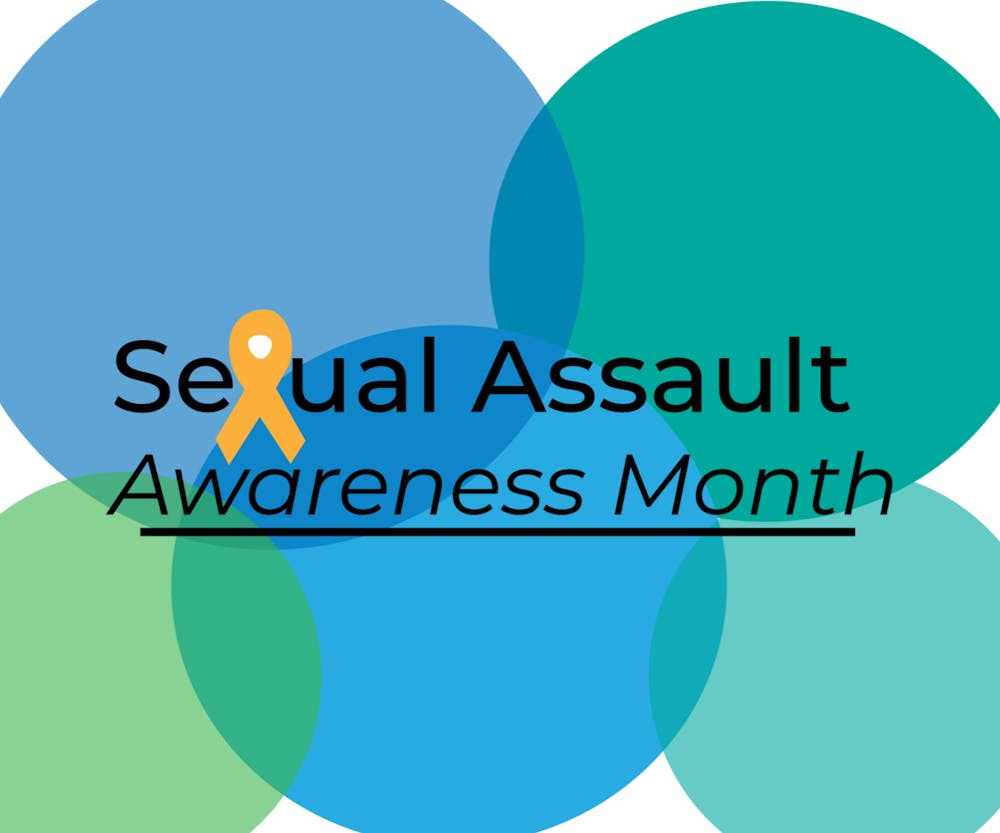April is the 19th anniversary of Sexual Assault Awareness Month. According to the National Sexual Violence Resource Center, or NSVRC, Sexual Assault Awareness Month’s primary goal is “for individuals and organizations to raise public awareness about sexual harassment, assault and abuse and educate communities on how to prevent it.” This year’s theme is “I Ask,” highlighting the need to ask for consent.
The NSVRC provides tool kits for supporters to organize events in order to raise awareness, but this year’s month is going to be different due to the rapid global spread of the coronavirus. Organizations and students at Ohio University are utilizing resources in attempt to put together virtual events online so that the importance of Sexual Assault Awareness Month can still be expressed.
Yejin Sohn, a survivor advocate in the OU Survivor Advocacy Program, or SAP, emphasized that Sexual Assault Awareness Month must still be recognized even amid the COVID-19 pandemic because heightening awareness of sexual violence is still just as important. National events such as Take Back the Night or Walk a Mile in Her Shoes are now held virtually, allowing organizations to still make a powerful statement and show their support.
“Being an ally and supporting survivors’ voices is a powerful method to promote sexual assault awareness,” Sohn said in an email. “At Take Back the Night, we held the event virtually and many people participated on Twitter and posted how they support and believe survivors of sexual assault, even though they may not be a survivor themselves. It can show other people how much we support sexual assault survivors and it can help to promote the awareness of this horrific problem.”
Sohn said having an ongoing conversation about sexual assault is just as important as celebrating Sexual Assault Awareness Month itself. Making survivors’ voices heard, loudly, both helps them feel listened to and prevents future sexual assaults.
Advocates in SAP are now working remotely due to the closure of OU’s campus. The program’s 24-hour hotline is still operating, and advocates speaking with survivors via video chat or phone. Sohn said the only difference is that if someone calls from a hospital during a sexual assault exam, support will be provided via telephone rather than in-person.
“As advocates, we try our best to get access to survivors now,” Sohn said in an email. “Many centers like SAP open webinars and discussion sessions to share how they support their clients in this situation and ask for help to improve their services. We will not give up supporting survivors, so I want to remind them to reach out if they need us.”
Even organizations like #SpeakUp, an organization at OU focusing on gender issues and violence, are trying their hardest to continue producing content and fighting for survivors. Claudia Cisneros, president of #SpeakUp and a journalism graduate student at OU, said, due to the coronavirus, #SpeakUp had to cancel the three workshops it had planned, reprogramming them for the 2021 Fall Semester.
However, there are many ways that students can still fight and push for awareness. Cisneros said staying informed and listening to victims’ experiences can help students understand the depth of the harm that sexual assault can cause.
“Another way is talking about it within your peers,” Cisneros said in an email. “Know what rape culture implies and how we all have contributed to it at certain times. Either by enabling it with our ignorance or by not taking a stand and calling out locker room and sexist jokes, or behaviors of our friends or family.”
Cisneros highlighted that survivors must keep track of their emotional health during the spread of the coronavirus because isolation can very easily trigger stress and bad memories. Potential victims could also be trapped in lockdown with their aggressor at home due to Ohio’s stay-at-home order, so they must know that there is always help available through SAP, OU’s Counseling & Psychological Services and many other resources.
Social media platforms are one way that students can work from home to promote sexual assault awareness. Emilee Caudill, a sophomore studying journalism, said simply speaking out, even if it’s just through social media, can make a world of a difference for survivors because they simply know that they’re being heard and that their story matters. Caudill said a lot of survivors’ coping mechanisms rely on distraction, and that quarantine provides little distraction. She feels that checking in on survivors or reminding them that they are heard is an important step that people can take right now while isolated in their homes.
“Remind them that, even in this panic, they are not forgotten,” Caudill said in an email. “They may not get sick during this time, but this isolation could be just as fatal … Just be there and be willing to listen to the survivor in your life, please.”
Caudill stressed that, although the world may be shut down on the outside, the internet provides countless resources and support groups dedicated to helping survivors everywhere. She insisted that survivors do whatever they need to make it through this, even if it’s an unconventional coping mechanism.
“No one will be able to put themselves in your shoes right now and it’s okay to be sad, but remember how strong you are for making it through what you already have,” Caudill said in an email. “This pandemic will not be what makes you give up, because you’re supported by survivors everywhere who won’t let you. No matter the state of the world, you are heard, you are important, and you are going to make it through this.”
Survivors and whoever else needs help can contact advocates from SAP at 740-597-SAFE (7233) or survivor.advocacy@ohio.edu.
People can also reach out to OU’s Counseling & Psychological Services at any time by calling 740-593-1616 to speak with a counselor. If calling after hours, they should press 1 to be connected with a counselor.






